A family pet can be a wonderful addition to the household. Besides bringing love and companionship into your home, pets can provide a learning experience for children. Caring for an animal teaches them compassion and responsibility, and being adopted can be a life-saving event for a dog or cat. Even if you don’t have the time or the finances to care for a large animal, there are smaller ones that make excellent pets. Not sure which pet you should go with? The following tips will give you a lot to think to help you choose the best pet for your family; one that is ready to give you just as much love and attention as you will give them.
Be Honest About Your Lifestyle
Like most families, life gets busy. Do you work from home or do you need to be at the office five days a week, working many long hours? Will your kids be busy in the evenings with sports and other activities? Look at your schedule and think about how much time someone will be at home on any given day.
Many pets are perfectly okay having a snooze and looking out the window until you get home, but it’s important to have a set routine and to spend time with them. If you’re never home, it might be better to look at other pets that don’t mind being left alone for long periods of time or ones that are happy in a smaller space.

Think About Space
How much room do you have in your home and yard? If you live in a small apartment, then a large dog is probably not going to be a good fit. You also need to think about whether or not you have a fence. Some dogs need a lot of space to run, while others are perfectly content lying on the couch all day.
If you have a small yard or no yard at all, consider pets that don’t need a lot of room to run and play. These include cats, fish, birds, rodents, and reptiles.
Consider Allergies
If you have allergies, then obviously certain pets are out of the question. But, if you only have seasonal allergies, there are certain breeds that are less likely to trigger an allergic reaction.
The best way to test for allergies is by spending time with the animal. If you’re considering adoption, ask if you can take the dog or cat for a walk or sit with them in the shelter for a while. If your allergies flare up, then that pet is probably not the best choice for your family.

What Can You Afford?
Caring for a pet is not cheap. Pets need to be vaccinated, spayed or neutered, and they need to see the vet for routine check-ups and vaccinations. They also need good quality food, a safe place to sleep, toys, and plenty of love and attention.
Before you bring a pet home, sit down and figure out how much you can afford to spend on them every month. This includes initial costs; things like adoption fees and supplies – food and water bowls, and a bed or cage. Plus there are ongoing costs like food, toys, and vet bills.
Don’t forget to factor in the cost of pet insurance, which is highly recommended. This will help you cover the costs of unexpected veterinarian bills if your pet gets sick or injured.
Do Your Research
Once you have an idea of which type of pet would be a good fit for your family, it’s time to do some research. This is especially important if you’re considering a dog or cat, as there are so many breeds to choose from.
Talk to a veterinarian and your friends and family members who have pets. Read books and articles about different types of pets. The more you know, the better equipped you will be to make a decision. You want to be sure that whichever pet you choose, you have a clear idea of what to expect.
Adopt, Don’t Shop
If possible, adopt, don’t shop. There are millions of animals in shelters across the country that are waiting for their forever homes. By adopting, you’re not only giving a pet a second chance at life, but you’re also helping to reduce the number of animals that are euthanized each year.
Generally, there’s an adoption fee that includes spay or neuter charges and initial vaccinations for the animals. When you adopt, you can choose a pet that is already spayed or neutered, which saves you time and money. You also have the option of choosing an adult animal, which is often already housetrained, like an older dog.
Find a Reputable Breeder
If you have your heart set on a particular breed, then you will need to find a reputable breeder. This is someone who breeds animals for the love of the breed, not for profit. A good breeder will be able to answer all of your questions and will allow you to meet the parents of the animal you are interested in.
When you visit the breeder, pay attention to the conditions of the animals and the premises. The animals should be well-cared for and the facilities should be clean and spacious.
Take Your Time
Choosing a pet is a big decision. Don’t feel like you have to rush into it. Consider all of your options and take your time to find the perfect pet for your family.
Whether you’re choosing a pet like a new puppy to grow with your children or looking at exotic pets to expand your horizons, ensure you have a list of things that are considered a deal breaker and the items that are a must-have.

Important questions to think about include:
- What are you looking for in a pet?
- Where does this great pet spend most of its time?
- Do you want something that can be picked up?
- Do you think the ideal pet should be seen and not heard?
- What are your feelings about feeding? (think kibble versus live crickets)
- Are you looking for a short- or long-term commitment? (think about the life span of the pet)
- How many pets do you want and do you have a current pet already?
- Do you have veterinary care close by?
- Have you set up a budget for vet bills?
- Are you ready to go for walks every. single. day? Rain or shine?
- How much work are you (or your family) willing to put in?
- What kind of living space will your new pet need?
As you can see, there is a lot to think about when it comes to finding the perfect companion.
Planning It Out
Once you’ve decided your family is ready to welcome a new member, it’s now time to plan ahead. You want to decide in advance who will feed and walk the dog or feed the cat and clean the litter box.
Choose a veterinarian based on recommendations from friends who have pets. If your pet is a particular breed, educate yourself about his special needs.
For dogs, consider enrolling in obedience classes that include you and your pet. This can be a fun bonding experience for both of you, and it may save you from future frustration.
Educate yourself about proper nutrition. Do you want to go with kibble or raw food? What about treats? Premium seed or fresh fruit and vegetables?
Types of Pets to Consider
There are many different types of pets to choose from, so it’s important to do your research before deciding which one is right for you and your family.
Dogs and cats are the most popular, but they’re not the only options. There are plenty of other animals to consider; some are better for young kids while others could be a good fit for a family with older children.
Smaller mammals, such as rabbits, hamsters, and guinea pigs, make great pets for families with younger children. They’re relatively low-maintenance and are a good introduction to pet ownership.
If you’re looking for something a little more unique, you might consider a reptile, such as a snake or lizard. These pets require more care and attention than mammals but can make rewarding companions and they’re a great option for someone looking at small animals.
Birds are another option to consider. While they don’t require as much care as reptiles, they do need a bit more attention than small mammals.
Fish are often thought of as low-maintenance pets, but they actually require quite a bit of care. They need to be fed daily and you need to keep their tank clean.
Let’s dive into the details of some possible new pet options!

Cats
Generally speaking, cats are lower-maintenance animals than dogs, but they do need a minimum amount of attention and care to thrive. You’ll need a place in your home to keep a litter box, and it should be cleaned daily. Cats can bond closely with people and they show affection by purring and sitting close to their people, usually right in a lap!
- Pros: Low-maintenance, can bond closely with people, don’t need to be exercised
- Cons: Can be aloof, require a litter box
- Ideal for: People who want a low-maintenance pet but still want the companionship of an animal; people with allergies (cats produce less dander than dogs)
- Not ideal for: People who want a pet that will always be available to play; people with small children (cats can scratch and bite when they feel threatened)
Cats come in all shapes and sizes, from the small, delicate Siamese to the large and muscular Maine Coon. Some breeds are known for their independence, while others are quite affectionate. Do your research to find the right breed of cat for your family’s lifestyle.

Dogs
Canines require more time, attention, and commitment from their owners, especially when compared to a cat. Dogs are very sociable, and your new dog will consider you to be part of their family. Dogs need to be exercised daily, and they require a good amount of mental stimulation. This can come in the form of training, playing fetch, or going for walks in new places, not just for bathroom breaks!
- Pros: bond closely with people; need to be exercised, which can benefit the owner’s health as well; come in a wide variety of breeds, so you can find one that fits your lifestyle
- Cons: Require more time and attention than cats; some breeds require a lot of exercise, which may not be feasible for everyone; some breeds are known to be “escape artists” and may require a high fence or special containment system
- Ideal for: People who want a companion that will always be available to play; people who are looking for an exercise buddy; people who want a pet that can be trained to perform tricks or tasks
- Not ideal for: People who want a low-maintenance pet; people with allergies (dogs produce more dander than cats)
Dogs are often chosen according to breed and, to a certain extent, that makes sense. However, purebred dogs usually have a higher incidence of physical problems that may or may not be present at birth. This could include a variety of health issues, like breathing or heart problems.
There are good reasons to adopt a particular breed, though. Poodles, Yorkshire Terriers and Airedales are among the breeds that are considered hypoallergenic, which is an important factor for some families. Some breeds are low-energy, while others are full of energy.
As mentioned, look at adoption! If you do choose a purebred dog, make sure that the breeder is licensed and registered with the Canadian Kennel Club, and ask to see the dog at its original home. If a breeder insists on bringing the dog to you, it could be a warning flag that the animals are being overbred and/or kept in poor conditions.
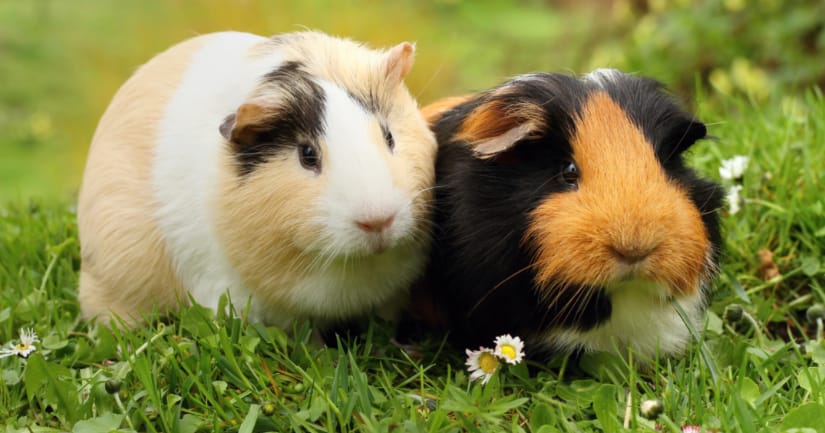
Small Mammals
Small mammals, like hamsters or a guinea pig, are popular pets for children. They are relatively low-maintenance, and they don’t require a lot of space. However, they do need a clean cage and fresh water daily.
- Pros: Low-maintenance, doesn’t require a lot of space
- Cons: Short lifespan (2-3 years on average), may bite if scared or mishandled
- Ideal for: Children who want a pet they can hold and cuddle; people who want a low-maintenance pet
- Not ideal for: People who want a pet that has a long life span
If you’re considering a small mammal as a pet for your child, be sure to do your research. Some animals, like hamsters, are nocturnal and may not be the best choice for a young child who wants to play with her pet during the day. Others, like a guinea pig, are social animals and do best when they have a “buddy” to cuddle with.
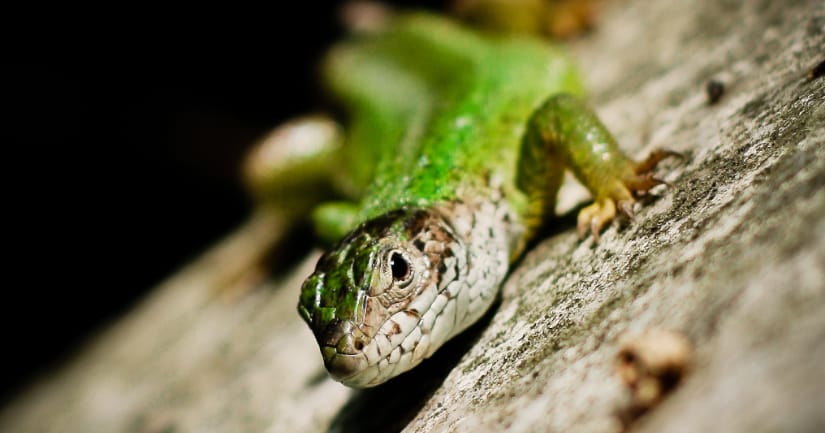
Reptiles
Reptiles can make good pets for people who want a low-maintenance animal. Most reptiles don’t need to be exercised, and they can live in a small space. Some reptiles, such as iguanas and snakes, can be expensive to care for, but others, such as geckos and turtles, are more affordable.
- Pros: Low-maintenance, can bond with people, don’t need to be exercised
- Cons: Some reptiles can be expensive to care for; some require special lighting and/or heating; some may carry diseases that can be transmitted to humans
- Ideal for: People who want a low-maintenance pet; people with allergies (reptiles produce less dander than dogs and cats)
- Not ideal for: People who want a pet that is always available to play; people with small children (some reptiles can bite or scratch when they feel threatened)
Reptiles can make good pets for people who want a low-maintenance animal, but it’s important to do your research before you choose one. And remember, they’re not really the most affectionate of pets. Reptiles require special lighting and/or heating, and some may carry diseases that can be transmitted to humans. Choose a reptile that is a compatible size for your home and lifestyle, and be sure to visit a reputable breeder or pet store.
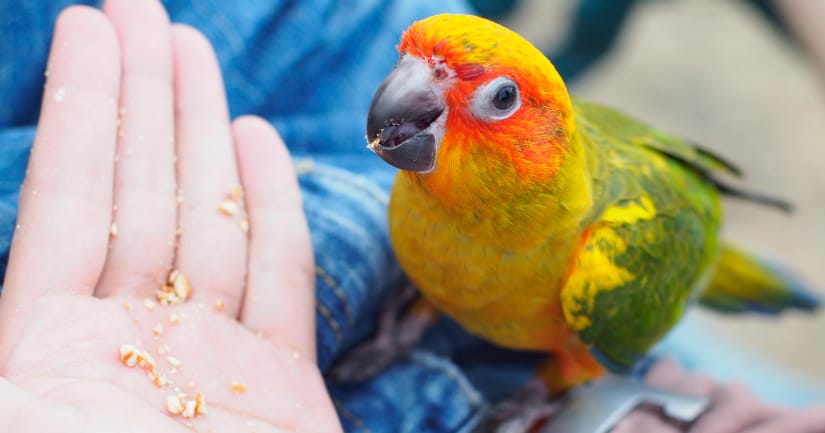
Birds
Birds can make good pets for people who want a companion that is low-maintenance. Most birds don’t need exercise, and they can live in a small space. Birds can be social animals and some species can be trained to perform tricks or tasks.
- Pros: Low-maintenance, can bond with people, some can be trained to perform tricks or tasks
- Cons: Some birds can be expensive to care for; some require special lighting and/or heating; some may carry diseases that can be transmitted to humans
- Ideal for: People who want a low-maintenance pet; people with allergies
- Not ideal for: People who want a pet that is always available to play with; people with small children (some birds can bite or scratch when they feel threatened)
When choosing a bird as a pet, it is important to consider the bird’s personality and whether it is compatible with your lifestyle. Some small birds, such as parakeets, can be inexpensive to care for, while other birds, such as macaws, cost more.
Make sure the bird you choose has a compatible personality and you are prepared to handle the bird’s needs, which may include providing it with a large enough space to live in and regular access to fresh food and water. Choose a bird that is a compatible size for your home and lifestyle. You also want to make sure you’re getting your bird from somewhere reputable, be it a breeder or a specialty pet store.
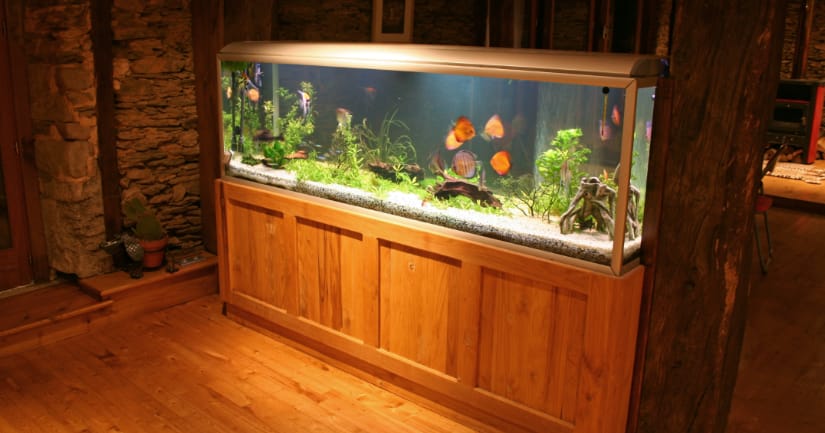
Fish
Fish are great starter pets. They don’t need to be exercised, and they can live in a small space. They aren’t going to bond with you as their owner, but fish are at the top of the list as low-maintenance starter pets.
- Pros: Low-maintenance, can live in a small space (great for apartments)
- Cons: Some fish can be expensive to care for; some require special lighting and/or heating;
- Ideal for: People who want a low-maintenance pet; people with allergies
- Not ideal for: People who want a pet that is always available to play with
When choosing a fish as a pet, it is important to consider whether it is compatible with your lifestyle. Some fish, such as goldfish, are cheap and like to have friends in their tank while others like a beta or something tropical will need more space.
Make sure you are prepared to handle the fish’s needs, which include providing it with a large enough tank, feeding regularly (but not too often!) and having clean water in their tank.
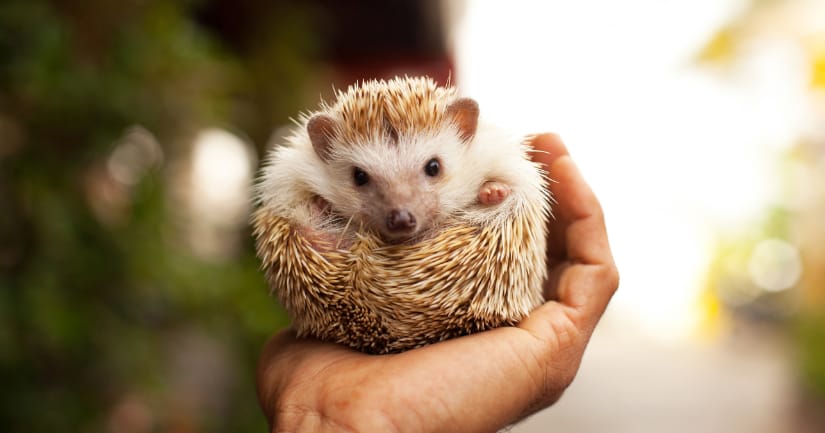
Exotic Animals
Exotic animals make interesting pets, but they can be difficult to care for. There are some other factors to take into account like local laws and specialized medical care.
There are a variety of exotic animals that people keep as pets, including ferrets, hedgehogs, spiders, and rodents. These animals require specialized care and may be difficult to find in pet stores. They also may require special lighting or heating, which can add to the cost of keeping them as a pet. Many exotic animals also have particular food needs and their life span covers a wide range, depending on what you’re looking at.
Exotic pets can be fascinating to watch and interact with, but they should not be taken lightly when it comes to considering them as a pet. Make sure you do your research before bringing an exotic animal into your home so that you are fully prepared to take on the responsibility of caring for it.
There’s a reason that so many pet owners treat their pets as if they were their own children. Animals are capable of affection, and they provide unconditional love and warm companionship every day of the year.
If you have the means to provide your pet with regular vet care, the space to give it a good and loving home and the time to spend with it, you’ll get so much more in return. When you do find the right pet, it will all be worth it. You’ll have a new best friend for life.
Originally published Feb 22, 2018; updated Apr 11, 2023








0 Comments